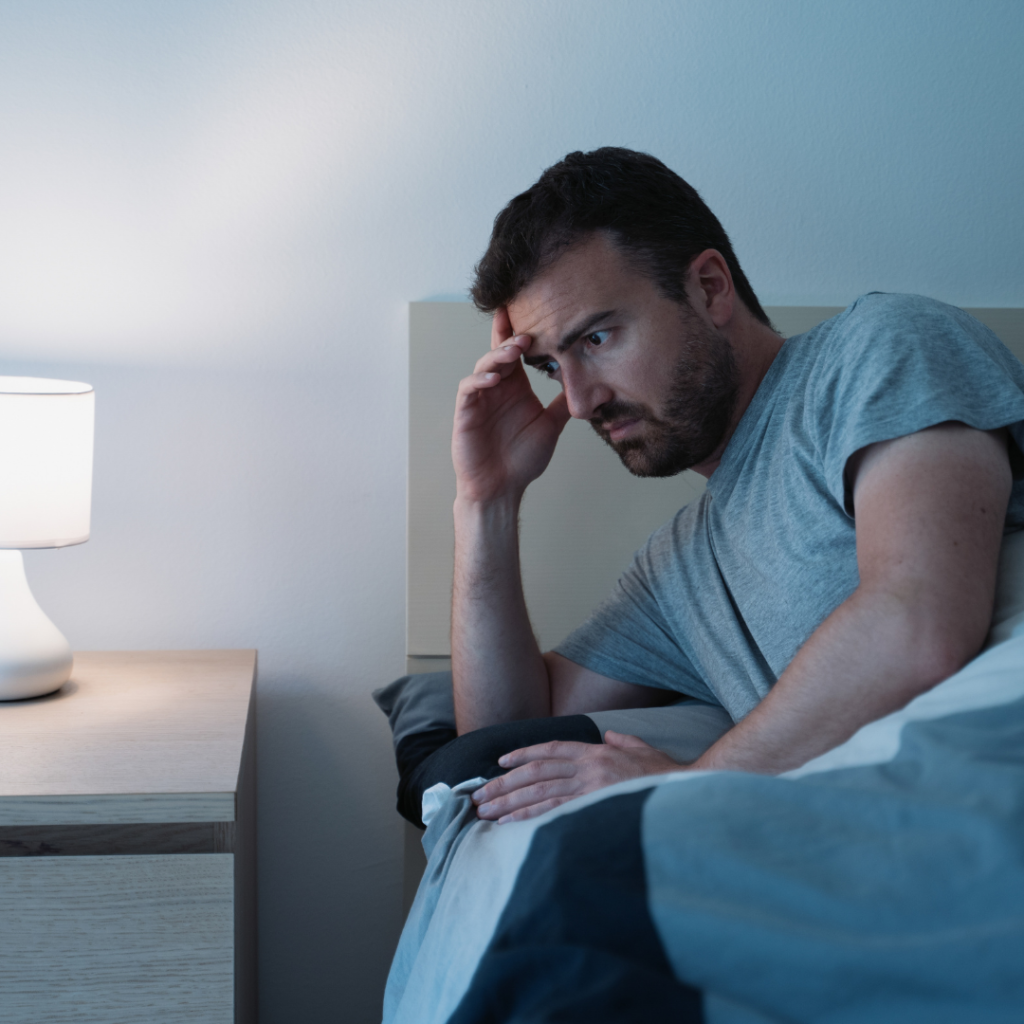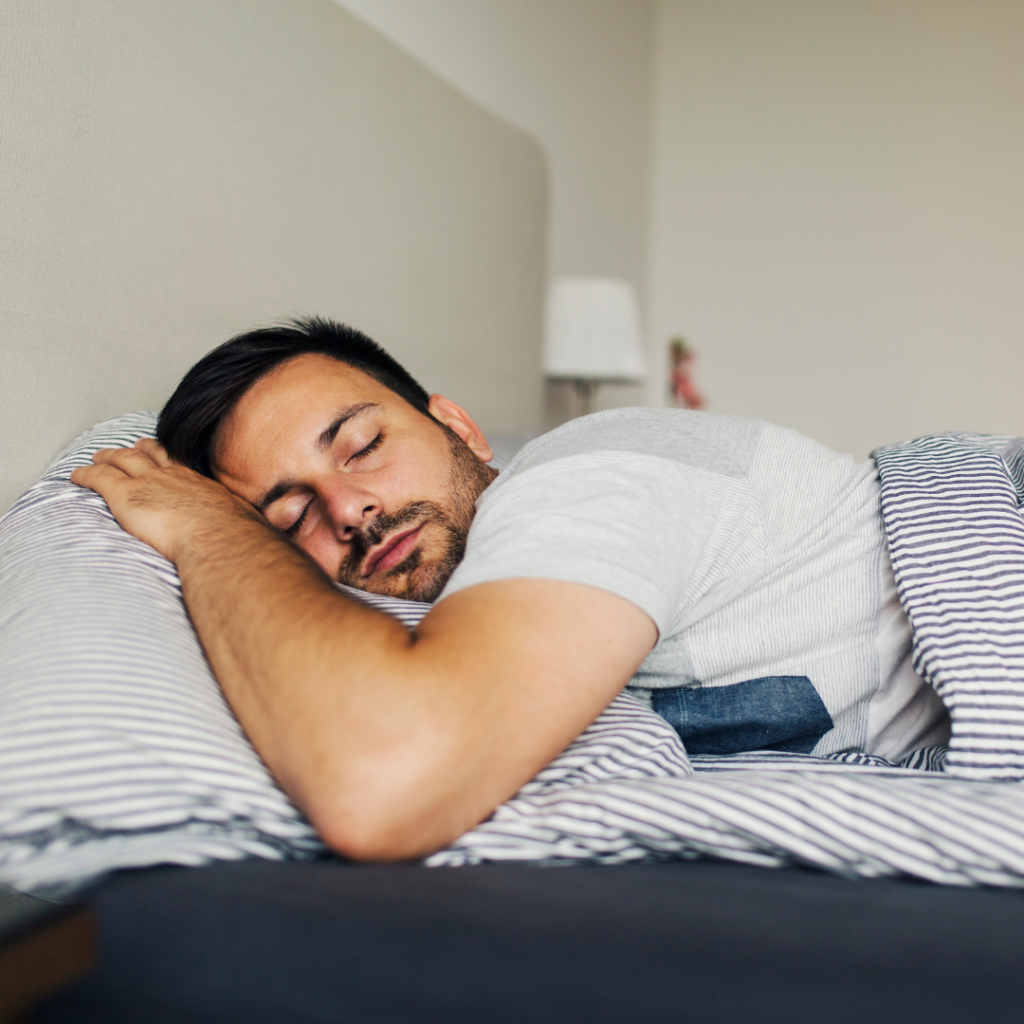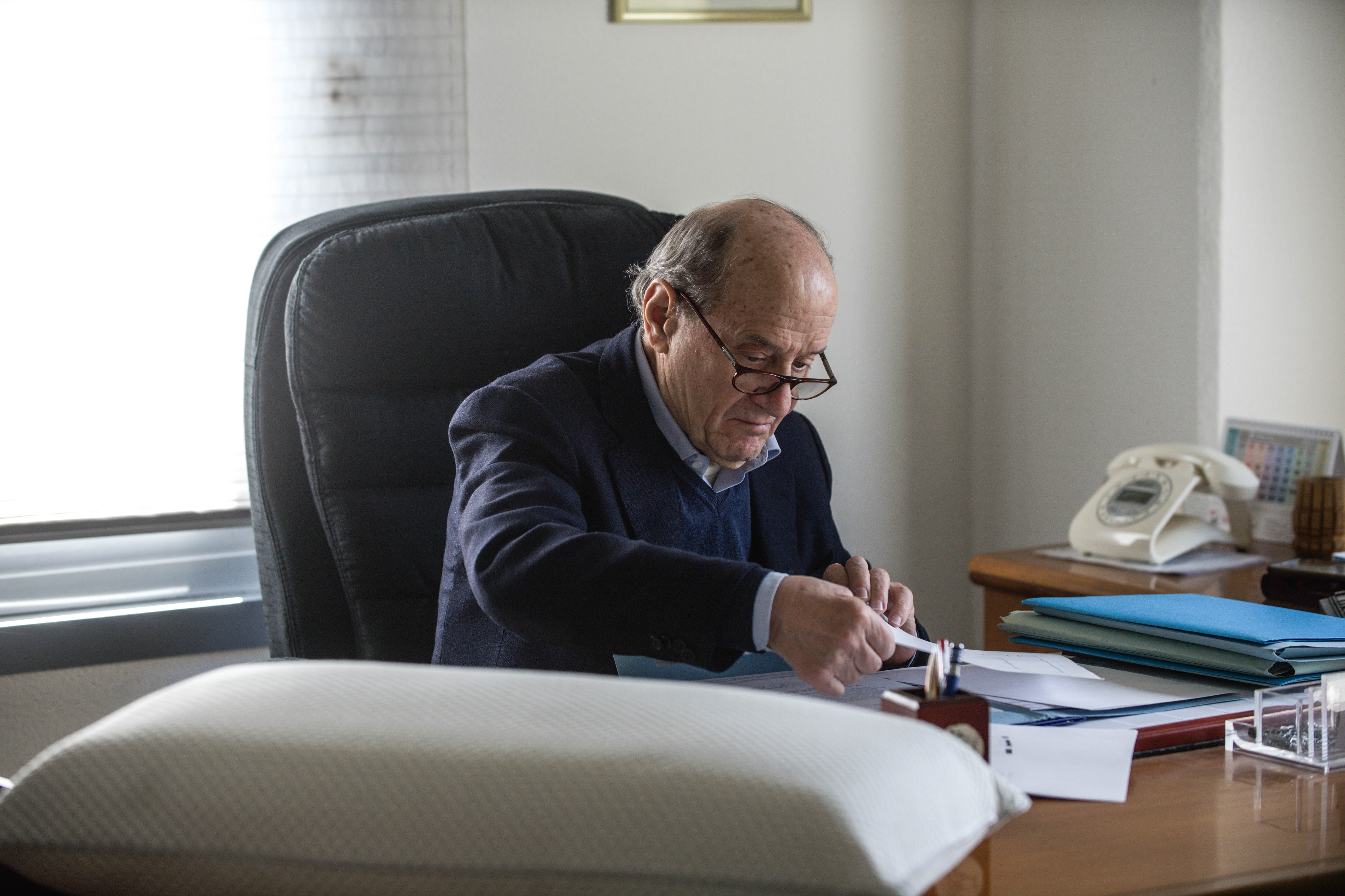What is insomnia?

Insomnia, in medicine, is part of the large family of sleep disorders. It is characterized by difficulties in getting enough sleep. The decrease in the quality and quantity of sleep as well as the fact that sleep is insufficiently restorative then causes daily difficulties. To the point that it becomes difficult to properly perform daily activities, such as drowsiness, reduced attention, irritability, … We all suffer from it at some point.
Generally, when the cause of these insomnias is found, you can in most cases, regain restorative sleep after a few weeks.
Two types of insomnia can be distinguished:
- Transient insomnia, often related to a particular and temporary situation. Such as a child who does not sleep through the night, stressful days at work, a divorce, … This type of insomnia, although transient, can last several weeks.
- Chronic insomnia, which lasts at least 3 nights a week for more than a month.
What are the causes of insomnia?
The causes of insomnia are numerous. But by discussing it with your partner or a doctor, you will be able to identify the cause.
Psychological causes
More or less severe psychological disorders such as stress, anxiety, or depression are the main causes of insomnia. When these bad nights occur repeatedly, you may begin to dread going to bed. However, this fear only worsens your sleep, putting you in a vicious circle.
Sleep disorders
There are many conditions that can lead to sleep disorders and cause more or less frequent episodes of insomnia. Here are a few:
- Restless legs syndrome (RLS),
- Hyperthyroidism,
- Sleep apnea syndrome,
- Narcolepsy
- Asthma or other respiratory diseases
- Etc
Environment and lifestyle
A set of conditions related to our environment or lifestyle can cause insomnia. Such as noise, heat, light, poor bedding, a rich diet, …
We have also written an article on this subject, which we invite you to read for a more complete overview of the behaviors and lifestyles that disturb your sleep as well as the one on the environmental factors that disturb your sleep.
What are the symptoms of insomnia?
When you suffer from insomnia, these symptoms appear:
- Difficulty falling asleep,
- Light and irregular sleep,
- Waking up several times during the night,
- Difficulty getting back to sleep,
- Fatigue upon waking,
- Fatigue, irritability, and concentration problems during the day,
- Reduced alertness or performance,
- Anxious anticipation of the arrival of night
In most cases, it is anxiety related to personal problems or the stress of not sleeping that will fuel this insomnia.
What are the consequences of insomnia?
Generally, the consequences of insomnia are characterized by fatigue upon waking, giving the impression of not having rested, and drowsiness during the day. Attention, concentration problems, irritability, and daytime sleepiness are also observed.
These attention and concentration deficits are accompanied by a higher risk of accidents. Whether work accidents or road accidents.
Severe insomnia can also lead to a depressive state.
What can be done to fight insomnia?
Insomnia requires a treatment adapted to each situation.
Non-medicated solutions: tips to apply.
- Go to bed only when you feel like sleeping,
- Do not stay in bed for more than 20-30 minutes if you cannot sleep or get back to sleep. Get up and engage in a relaxing activity such as meditation or reading a book. Once the feeling of fatigue sets in, go back to bed.
- Establish a sleep routine. During the week, get up and go to bed at regular hours.
- Reserve your bedroom for sleep or sexual activity, do not engage in other activities in this room.
- Avoid blue screen light before going to bed.
By applying these tips, you will see results by the end of the first month. They require commitment, discipline, and motivation. But if applied, your body will thank you.
Medicated solutions.
If insomnia persists despite everything, we invite you to consult your doctor. Sleeping pills may then be prescribed. These medications can be useful in the short term but not in the long term, as insomnia is not treated but masked, and its cause is not identified.
Homeopathy
Insomnia can be relieved by plants and homeopathic treatments. The best known is valerian, which you can easily find in pharmacies and some supermarkets. We recommend taking it in capsule form, as it has a very bitter taste. Escholtzia is known for its calming and analgesic properties. If your insomnia is due to psychological causes, you can try rhodiola, which is reputed to act on both mental and physical fatigue.
In any case, it is best to ask your pharmacist for advice. They will be able to advise you and provide the best homeopathic treatment.
Understand your sleep

Sleep needs
We all have our own sleep rhythm, with its schedules and habits. Sleep needs will therefore vary from one person to another and from one age to another. On average, an adult needs to sleep between 7 and 8 hours per night. Our genetics define our sleep category: heavy sleeper, light sleeper. But it also determines the number of hours of sleep we need and the duration of our cycles.
So there is no need to worry if you do not fit into the 7 to 8 hours of sleep per night range. Focus on meeting your needs. Do you feel rested in the morning? Did you feel like you slept well? To understand your sleep, we invite you to read this article.
What is a good night’s sleep?
A good night's sleep is defined by 4 criteria:
- Falling asleep within 20 to 30 minutes
- Sleeping between 6 and 9 hours per night
- Waking up for less than 20 minutes in total per night
- Having 4 to 6 sleep cycles per night (evaluated by a polysomnographic recording)
Final word
Insomnia is a sleep disorder that is important to treat. Sleep is essential to our well-being and health. Therefore, it should not be neglected. Do not hesitate to talk about your insomnia problems with your doctor; in most cases, they will prescribe medication to help you sleep. If the problem persists, it would be good to consult a licensed psychologist, who can help you identify the cause(s) of your insomnia.
The post I suffer from insomnia, how can I remedy it? first appeared on Le journal de l'oreiller.







Leave a comment
All comments are moderated before being published.
This site is protected by reCAPTCHA and the Google Privacy Policy and Terms of Service apply.